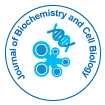Наша группа организует более 3000 глобальных конференций Ежегодные мероприятия в США, Европе и США. Азия при поддержке еще 1000 научных обществ и публикует более 700 Открытого доступа Журналы, в которых представлены более 50 000 выдающихся деятелей, авторитетных учёных, входящих в редколлегии.
Журналы открытого доступа набирают больше читателей и цитируемости
700 журналов и 15 000 000 читателей Каждый журнал получает более 25 000 читателей
Индексировано в
- Публикации
- ICMJE
Полезные ссылки
Журналы открытого доступа
Поделиться этой страницей
Абстрактный
Organelle Structure and Function: A Comprehensive Overview
Sumona D
Organelles are specialized substructures within eukaryotic cells that play pivotal roles in cellular organization, metabolism, and function. This review provides a comprehensive overview of the structure and function of key organelles, emphasizing their intricate interplay in maintaining cellular homeostasis. The nucleus, acting as the cellular control center, houses genetic material and orchestrates vital cellular processes. Mitochondria, often referred to as the powerhouses of the cell, are responsible for energy production through oxidative phosphorylation. The endoplasmic reticulum, a complex membrane system, is crucial for protein synthesis, folding, and transport. Meanwhile, the Golgi apparatus processes and modifies proteins for secretion or cellular use. Lysosomes, the cell's recycling centers, degrade cellular waste, and maintain cellular cleanliness. The cytoskeleton provides structural support, facilitates cell movement, and aids in intracellular transport. Peroxisomes participate in lipid metabolism and detoxification processes. The endomembrane system, comprising the endoplasmic reticulum, Golgi apparatus, and vesicles, regulates the synthesis and transport of lipids and proteins. This review explores recent advancements in understanding organelle dynamics, interactions, and their implications for cellular health. The emerging field of organelle communication and its impact on cellular responses to stress and environmental cues are also discussed. Additionally, the role of organelles in diseases, such as neurodegenerative disorders and metabolic syndromes, is highlighted. A comprehensive understanding of organelle structure and function is essential for unraveling the complexities of cellular physiology and pathology. Insights gained from this exploration contribute to the development of targeted therapeutic strategies for diseases associated with organelle dysfunction, fostering advancements in cell biology and medicine.
Журналы по темам
- Биохимия
- Ветеринары
- Генетика и молекулярная биология
- Геология и науки о Земле
- Еда и питание
- Иммунология и микробиология
- Инженерное дело
- Клинические науки
- Материаловедение
- медицинские науки
- Науки об окружающей среде
- Общая наука
- Сельское хозяйство и аквакультура
- Социальные и политические науки
- Уход и здравоохранение
- Фармацевтические науки
- Физика
- Химия

 English
English  Spanish
Spanish  Chinese
Chinese  German
German  French
French  Japanese
Japanese  Portuguese
Portuguese  Hindi
Hindi